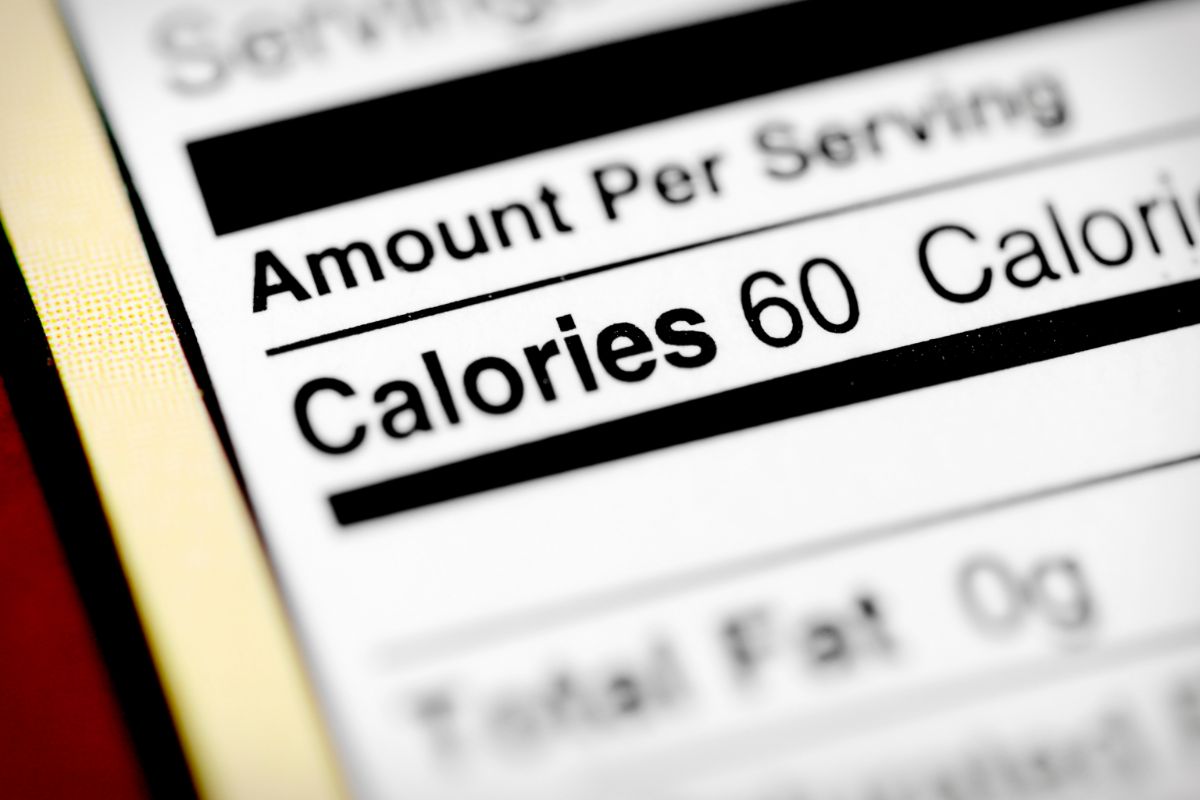Running is one of the most popular ways to lose weight.
By simply putting on your running shoes and heading out, you can start to lose weight with visible results in just a few months!

Despite that—and for the most effective weight loss progress—it’s important to track your runs. This can be done using one, or several, or the following:
- Distance
- Time
- Pace (speed)
Putting it simply, tracking these running metrics is important for establishing a goal, and therefore a foundation for effective weight loss.
But what’s more important than these, at least where weight loss is concerned, is calories.
But don’t worry if this all sounds overwhelming. This guide will explain everything you need to know in simple terms, so that you can start losing weight today!
Tracking Distance, Time, And Pace
As mentioned up top, it’s important to track distance, time, and pace each time you run.
These will not only be an indicator of your current fitness level, but become goals to shoot for when it comes to losing weight.
Sure, it’s possible to lose weight by consistently heading out and going for a run.
But without knowing how far you’re running or for how long, the inconsistency can slow down your progress – or result in no weight loss at all.
Of these three metrics, the two most simple to understand and track are distance and time. You can use either to measure your runs, depending on the time you have available as well as how motivated you are!
As for pace, which measures the consistent speed at which you run, the faster this is, the more you can expect to lose weight.
For the most accuracy when tracking distance, time, and pace, use a running app on your smartphone or a GPS fitness tracker.
So, How Much Should You Run To Lose Weight?
With running distance and time in mind, how much should you run to lose weight?
This is where it gets complicated. But for the simplest answer, you should consistently run for a time or distance that challenges you.
The thing is, everyone has a current fitness level, age, and weight. And any amount of running will have different weight loss results for different people, resulting from those factors.
It’s possible to lose weight by consistently challenging yourself and running as much as you possibly can. However, not tracking anything can result in inconsistent results or even no weight loss results at all.
Unfortunately, it all boils down to calories. Yep – those famous little numbers.
Tracking Calories Is More Important Than Running
If you’re serious about weight loss, tracking your calories is far more important than running – at least for fast and effective weight loss results.
This is because you can run every day for two hours a day—or more—but if you’re eating more calories than you are burning, you’re not going to lose any weight at all. In fact, in this case, you’d put on weight!
Don’t understand? Don’t worry – as this leads us onto the next section.
Calories Explained

Going back to age and weight (mentioned above), everyone has their own set amount of calories they need to consume per day to remain at the same weight – for example, 2000 calories.
This is known as a person’s “maintenance calories”.
Building on the above example, if 2000 calories is your maintenance calories, consistently consuming more calories than this number per day will result in weight gain. This is known as a caloric surplus.
Consistently consuming fewer calories than your maintenance calories will result in weight loss, known as a caloric deficit.
By consistently consuming 2000 calories per day, you won’t lose or gain weight at all, also known as—you guessed it—caloric maintenance.
Using Running To Burn Calories
So, what does running have to do with caloric maintenance, caloric surpluses and caloric deficits?
Running burns calories. Therefore, it’s a “tool” you can use to burn more calories to help you achieve a caloric deficit – which will initiate weight loss.
“Calories in” means the calories you eat and “calories out” means the calories you burn. And the main way to lose weight—in fact, the only way (at least naturally!)—is to, simply put, burn more calories than you eat.
It’s important to know that the more physically challenging your runs are, the more calories you will burn.
So, the further you run (distance), the longer you run (time), and the faster you run (pace) will all contribute to burning more calories.
And by using a running app or GPS fitness tracker, you can track the calories you burn with each run, alongside distance, time, and pace.
So, how much should you run to lose weight? The real answer is the amount of consistent running that burns enough calories to put you in a daily caloric deficit.
Don’t Forget To Maintain A Good Diet
We’ve covered running and calories. The last thing you need to know for losing weight is maintaining a good diet.
Needless to say, calories are linked to your diet – the food you consume on a daily basis.
And, generally speaking, to lose weight, you’ll want to opt for eating healthy, low-calorie foods as opposed to unhealthy, high-calorie foods.
Despite that, some foods can be healthy but high in calories. But the overall point is to avoid junk food and snacks and opt for food with good nutritional value.
By doing this, you can reduce your daily calorie intake and therefore make it far easier to achieve a caloric deficit.
This, in addition to burning calories with running, is going to help you lose weight in the fastest amount of time.
Final Word
Unfortunately, fast and effective weight loss doesn’t come easy without considering your calorie intake.
But if you’ve read all the above, you should know everything you need to do—running and diet-wise—to start losing weight today.
The simple answer is to run as much as you consistently can to a degree that challenges you. The real answer, though, is to run a consistent amount that burns enough calories to put you in a daily caloric deficit!
- Can Dogs Run Faster Than Humans? (Running With Your Furry Friend) - October 4, 2022
- 10 Doggie Fun Runs You Will Love [Ultimate Guide] - October 4, 2022
- What Are Division Results In Running? - October 4, 2022








